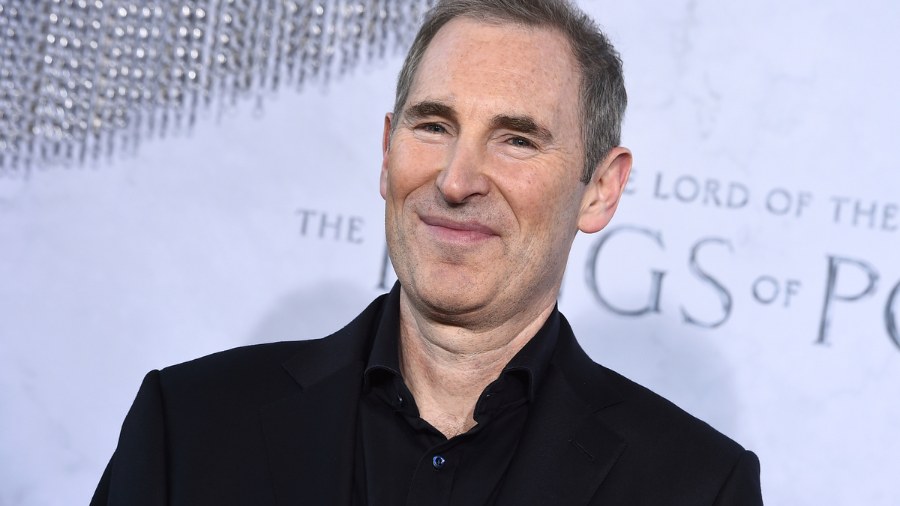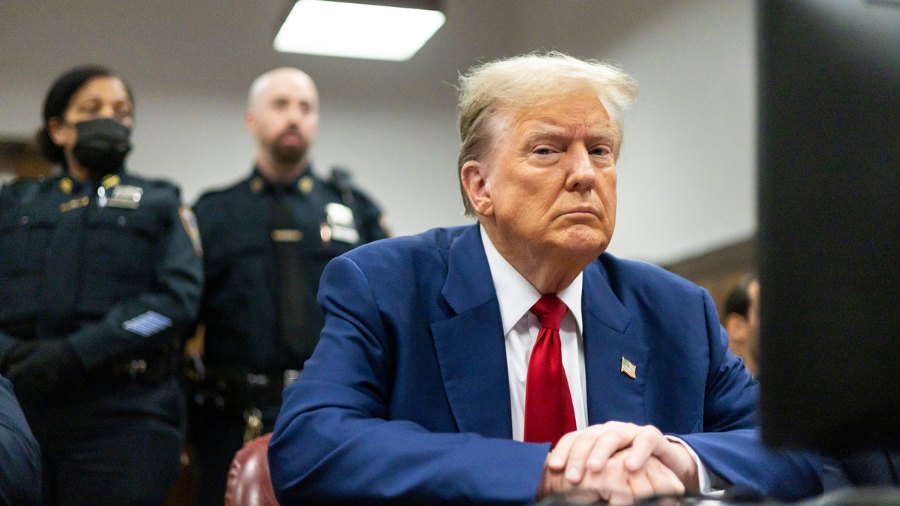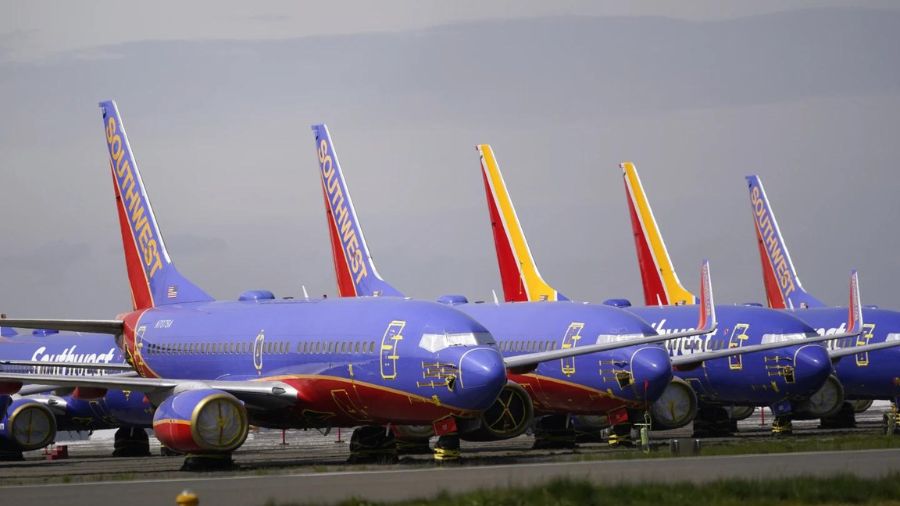Fed’s rate hikes likely to cause a recession, research says
Feb 23, 2023, 6:23 PM | Updated: Feb 24, 2023, 12:48 pm

FILE - Traders on the floor at the New York Stock Exchange watch Federal Reserve Chair Jerome Powell's news conference after the Federal Reserve interest rate announcement in New York, Wednesday, Feb. 1, 2023. Over the past year, the Fed has raised its key short-term rate eight times, causing many kinds of consumer and business loans to become more expensive.(AP Photo/Seth Wenig, File)
(AP Photo/Seth Wenig, File)
NEW YORK (AP) — Can the Federal Reserve keep raising interest rates and defeat the nation’s worst bout of inflation in 40 years without causing a recession?
Not according to a new research paper that concludes that such an “immaculate disinflation” has never happened before. The paper was produced by a group of leading economists, and three Fed officials addressed its conclusions in their own remarks Friday at a conference on monetary policy in New York.
When inflation soars, as it has for the past two years, the Fed typically responds by raising interest rates, often aggressively, to try to cool the economy and slow price increases. Those higher rates, in turn, make mortgages, auto loans, credit card borrowing and business lending more expensive.
But sometimes inflation pressures still prove persistent and require ever-higher rates to tame. The result — steadily more expensive loans — can force companies to cancel new ventures and cut jobs and consumers to reduce spending. It all adds up to a recipe for recession.
And that, the research paper concludes, is just what has happened in previous periods of high inflation. The researchers reviewed 16 episodes since 1950 when a central bank like the Fed raised the cost of borrowing to fight inflation, in the United States, Canada, Germany and the United Kingdom. In each case, a recession resulted.
“There is no post-1950 precedent for a sizable … disinflation that does not entail substantial economic sacrifice or recession,” the paper concluded.
The paper was written by a group of economists, including: Stephen Cecchetti, a professor at Brandeis University and a former research director at the Federal Reserve Bank of New York; Michael Feroli, chief U.S. economist at JPMorgan and a former Fed staffer; Peter Hooper, vice chair of research at Deutsche Bank, and Frederic Mishkin, a former Federal Reserve governor.
The paper coincides with a growing awareness in financial markets and among economists that the Fed will likely have to boost interest rates even higher than previously estimated. Over the past year, the Fed has raised its key short-term rate eight times.
The perception that the central bank will need to keep raising borrowing costs was reinforced by a government report Friday that the Fed’s preferred inflation gauge accelerated in January after several months of declines. Prices jumped 0.6% from December to January, the biggest monthly increase since June.
The latest evidence of price acceleration makes it more likely that the Fed will need to do more to defeat high inflation.
Yet Philip Jefferson, a member of the Fed’s Board of Governors, offered remarks Friday at the monetary policy conference that suggested that a recession may not be inevitable, a view that Fed Chair Jerome Powell has also expressed. Jefferson downplayed the role of past episodes of inflation, noting that the pandemic so disrupted the economy that historical patterns are less reliable as a guide this time.
“History is useful, but it can only tell us so much, particularly in situations without historical precedent,” Jefferson said. “The current situation is different from past episodes in at least four ways.”
Those differences, he said, are the “unprecedented” disruption to supply chains since the pandemic; the decline in the number of people working or looking for work; the fact that the Fed has more credibility as an inflation-fighter than in the 1970s; and the fact that the Fed has moved forcefully to fight inflation with eight rate hikes in the past year.
Speaking at Friday’s conference, Loretta Mester, president of the Federal Reserve Bank of Cleveland, came closer to accepting the paper’s findings. She said its conclusions, along with other recent research, “suggest that inflation could be more persistent than currently anticipated.”
“I see the risks to the inflation forecast as tilted to the upside and the costs of continued high inflation as being significant,” she said in prepared remarks.
Another speaker, Susan Collins, president of the Boston Fed, held out hope that a recession could be avoided even as the Fed seeks to conquer inflation with higher rates. Collins said she’s “optimistic there is a path to restoring price stability without a significant downturn.” She added, though, that she’s “well-aware of the many risks and uncertainties” now surrounding the economy.
Yet Collins also suggested that the Fed will have to keep tightening credit and keep rates higher “for some, perhaps extended, time.”
Some surprisingly strong economic reports last month suggested that the economy is more durable than it appeared at the end of last year. Such signs of resilience raised hopes that a recession could be avoided even if the Fed keeps tightening credit and makes mortgages, auto loans, credit card borrowing and many corporate loans increasingly expensive.
Problem is, inflation is also slowing more gradually and more fitfully than it first seemed last year. Earlier this month, the government revised up consumer price data. Partly as a result of the revisions, over the past three months, core consumer prices — which exclude volatile food and energy costs — have risen at a 4.6% annual rate, up from 4.3% in December.
Those trends raise the possibility that the Fed’s policymakers will decide they must raise rates further than they’ve previously projected and keep them higher for longer to try to bring inflation down to their 2% target. Doing so would make a recession later this year more likely. Prices rose 5% in January from a year earlier, according to the Fed’s preferred measure.
Using the historical data, the authors project that if the Fed raises its benchmark rate to between 5.2% and 5.5% — three-quarters of a point higher than its current level, which many economists envision the Fed doing — the unemployment rate would rise to 5.1%, while inflation would fall as low as 2.9%, by the end of 2025.
Inflation at that level would still exceed Fed’s target, suggesting that the central bank would have to raise rates even further.
In December, Fed officials projected that higher rates would slow growth and raise the unemployment rate to 4.6%, from 3.4% now. But they predicted the economy would grow slightly this year and next and avoid a downturn.
Other economists have pointed to periods when the Fed successfully achieved a so-called soft landing, including in 1983 and 1994. Yet in those periods, the paper notes, inflation wasn’t nearly as severe as it was last year, when it peaked at 9.1% in June, a four-decade high. In those earlier cases, the Fed hiked rates to prevent inflation, rather than having to reduce inflation after it had already surged.
Copyright © The Associated Press. All rights reserved. This material may not be published, broadcast, rewritten or redistributed.















